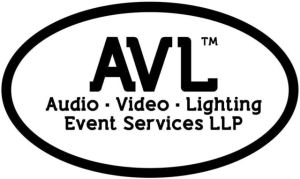10 Things Not to Buy in 2010 from Yahoo
I agree on this list and I can add a few more…What about fax machines? Or anything Al Gore puts out? What about Oprah’s book of the month club? That can go in the trash too. Dot com businesses. Encyclopedias. How bout not buying drugs if you don’t need them? Now there’s a hot topic…How about new homes or cars? Save some money people, take a trip, kick a pyramid. As in the list below, DVD’s, no need to buy them from Blockbuster or anyone else when you can download them for free…like me 😛
chuck
Here’s yahoo’s list..
and the link for the whole article…
http://finance.yahoo.com/family-home/article/108504/10-things-not-to-buy-in-2010
10 Things Not to Buy in 2010
Ten years ago, most homes relied on dial-up connections to access the Internet and iPods, flat-screen TVs and the Nintendo Wii didn’t exist.
In 2010, consumer should expect to see more revolutionary products supplanting old mainstays. In media, DVDs, books, newspapers and magazines will continue to lose ground to services like in-home movie rentals and gadgets like the Amazon (AMZN) Kindle. In big-ticket items, the push for energy efficiency will continue to influence consumer decisions on cars and home upgrades.
As a result, some consumer products appear poised for a dip in sales, which could be a prelude to obsolescence. Here are 10 items not to buy in 2010.
DVDs
The days of going to a video shop to rent a movie are at an end. In September, Blockbuster (BBI) said it plans to close roughly 22% of its stores by the end of 2010; meanwhile, third-quarter revenue was down 21% from the year-ago period. (The company didn’t return calls for comment.)
| More from Yahoo! Finance:• What the Car You Drive Reveals About You
• Cut Your Tech Bill Without Trimming Services • Save Up to $1,500 per Year on Your Energy Bill Visit the Family & Home Center |
Looking ahead, DVD purchases could turn cold, as well. On average, DVDs sell for at least $20 each. That’s pricier than signing up for Netflix (NFLX) or renting movies from cable providers’ on-demand channels. Netflix charges as little as $8.99 a month to rent one DVD at a time (with no limit to the number of monthly rentals).
Time Warner Cable offers thousands of movies on demand for around $4.99 each. Verizon Fios cable service charges $5.99 a month to download unlimited movies.
Home telephone service
It will probably take a while, but home landlines could become as archaic as the rotary phone.
According to a Centers for Disease Control and Prevention study, more than one in five U.S. homes (22.7%) had cellphones — and no landlines — during the first half of 2009, up from 10.5% during the same period in 2006.
Ditching your home phone is easier now than it has been in the past, as cell phone companies compete for greater market share and alternatives to the home landline continue growing. For example, magicJack provides phone service when it’s plugged into a computer’s USB port and a home phone. It costs $39.95 and includes a one-year license for calls in the U.S. and Canada; after that, service costs $19.95 per year. (By contrast, Time Warner Cable’s digital home phone service costs $39.95 per month.)
And, consider Skype, which is free when you communicate with other Skype users; this software application uses the Internet as a platform to make calls, hold video conferences and send instant messages.
External hard drives
Consumers who keep their computers for years and upload thousands of songs, videos, movies and photos will need to get more space at some point.
External hard drives are one option, but an up-and-coming alternative might be simpler and save you another transition down the road. Online backup services, like Carbonite.com or Mozy.com, allow users to back up data over the Internet.
These services are more expensive than purchasing an external hard drive, which typically starts at around $70. At Carbonite.com, a one-year subscription starts at $54.95, and at Mozy.com monthly subscription costs total $54.45 for a year.
Smartphone also-rans
In the past few years, several smartphones hit the market with similar features to the iPhone and BlackBerry, but they haven’t generated the same buzz. As a result, fewer developers are likely to create applications and other products that cater to those phones.
Today, the BlackBerry dominates the smartphone market with 40% market share, followed by the iPhone with 25%, according to data released by ComScore in December. In the near term, both are expected to stay at the top. ComScore found that most consumers who’ll be shopping for smartphones in the next three months plan to purchase a Blackberry (51%) or an iPhone (20%).
By contrast, only 5% of respondents said they planned to purchase T-Mobile’s MyTouch. The Palm Pre and Palm Centro received 2% and 1% of the vote, respectively.
A possible upcoming competitor that could shake up the space is Google’s (GOOG) Android. According to ComScore, as of October, the Android’s market share had doubled to 3.5% in the past year.
Compact digital cameras
For nearly a decade, digital compact cameras were must-haves for most consumers.
But during the past several years, another type of digital camera has been slowly rising in popularity: the single-lens reflex (SLR) camera, from manufacturers including Nikon, Canon (CAJ), Sony (SNE) and Olympus. Although bulkier, these cameras produce pictures that more accurately represent what’s in their viewfinders than those that use older technology.
They’re also pricier. For example, Canon’s digital compact cameras start at $110, while the SLRs start at $570.











